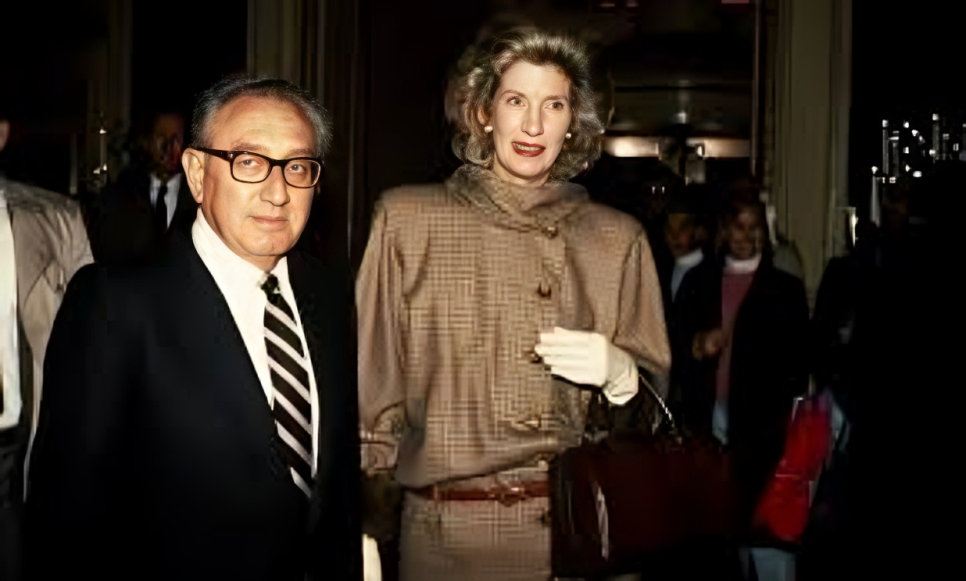Ann Fleischer is a name that often surfaces in discussions related to Henry Kissinger, the former U.S. Secretary of State and National Security Advisor. While much of the public’s attention has always been on Kissinger’s political career and global influence, Ann Fleischer’s story remains largely untold. This article delves into the life of Ann Fleischer, exploring her early years, marriage to Kissinger, and life after their separation.
Early Life and Background
Ann Fleischer was born in the early 20th century, though much of her personal history remains relatively obscure. Like Kissinger, she came from a Jewish background, and the two shared similar experiences of fleeing Nazi Germany to seek a better life in the United States. Their shared cultural and historical roots played a crucial role in bringing them together in the years to come.
As a young woman, Ann was known for her intelligence and strong character. She pursued her education and career with determination, embodying the resilience that defined many immigrants who had to start over in a new country. It was during these formative years that she met Henry Kissinger, who was also navigating his own path as a refugee-turned-academic.
Marriage to Henry Kissinger
Ann Fleischer and Henry Kissinger’s relationship began in the 1940s, when Kissinger was still a young man with aspirations but had not yet reached the heights of political influence. The two married in 1949, and Ann played an instrumental role in supporting him through his academic journey at Harvard University.
At that time, Kissinger was deeply focused on his studies, particularly in political science and international relations. As his wife, Ann provided stability and encouragement, helping him balance the demands of academia and personal life. Their marriage spanned 15 years, during which Kissinger’s career rapidly advanced, eventually leading him into the corridors of power in Washington, D.C.
Life During Their Marriage
During their marriage, Ann Fleischer was largely in the background as Kissinger’s career gained momentum. The 1950s and early 1960s were crucial years for Kissinger, as he built his reputation as a brilliant strategist and expert on foreign policy. His work at Harvard, coupled with government advisory roles, meant that he was often preoccupied with professional commitments.
Ann, meanwhile, managed their household and provided emotional and logistical support to her husband. She was known to be a dedicated and understanding partner, standing by Kissinger as he worked on various research projects and publications. However, the pressures of an ambitious career and an evolving political landscape placed strains on their relationship.
Divorce and Life After Separation
In 1964, after 15 years of marriage, Ann Fleischer and Henry Kissinger divorced. The reasons behind their separation have not been widely discussed, but it is believed that the increasing demands of Kissinger’s career and the changes in their personal lives contributed to the decision.
Following the divorce, Kissinger’s rise to prominence continued, eventually leading to his key roles in U.S. foreign policy during the Nixon and Ford administrations. Ann, on the other hand, chose a life away from the limelight. Unlike Kissinger, who became a household name, Ann preferred to maintain her privacy, focusing on her own personal and professional pursuits.
Ann Fleischer’s Later Years
After her divorce from Kissinger, Ann Fleischer remained relatively unknown to the public. She did not seek media attention, nor did she capitalize on her association with Kissinger. Instead, she pursued a quiet life, one that was presumably filled with her own interests, family, and career endeavors.
Little is documented about Ann’s later years, as she successfully maintained her privacy. However, her legacy is often remembered through the connection to Kissinger and the role she played during the crucial years of his early career.
Legacy and Reflection
Ann Fleischer’s life serves as a reminder that behind every public figure, there are individuals who contribute to their journey in meaningful ways. While she may not have been in the political spotlight, her support during the foundational years of Henry Kissinger’s career was invaluable.
Her story also highlights the experiences of women who stand beside influential men, often without receiving due recognition. Ann was an integral part of Kissinger’s personal and professional life during their marriage, and her contributions, though subtle, were significant.
Conclusion
Ann Fleischer’s name may not be widely recognized, but her role in Henry Kissinger’s early life and career is undeniable. As his first wife, she provided stability, support, and encouragement during a time when he was building his path toward becoming one of the most influential diplomats in American history.
While she chose a life away from public scrutiny, Ann’s story remains a testament to the unseen influence that individuals can have on history. Her legacy, though quiet, is a crucial part of the larger narrative surrounding Kissinger’s journey and the people who helped shape it.

